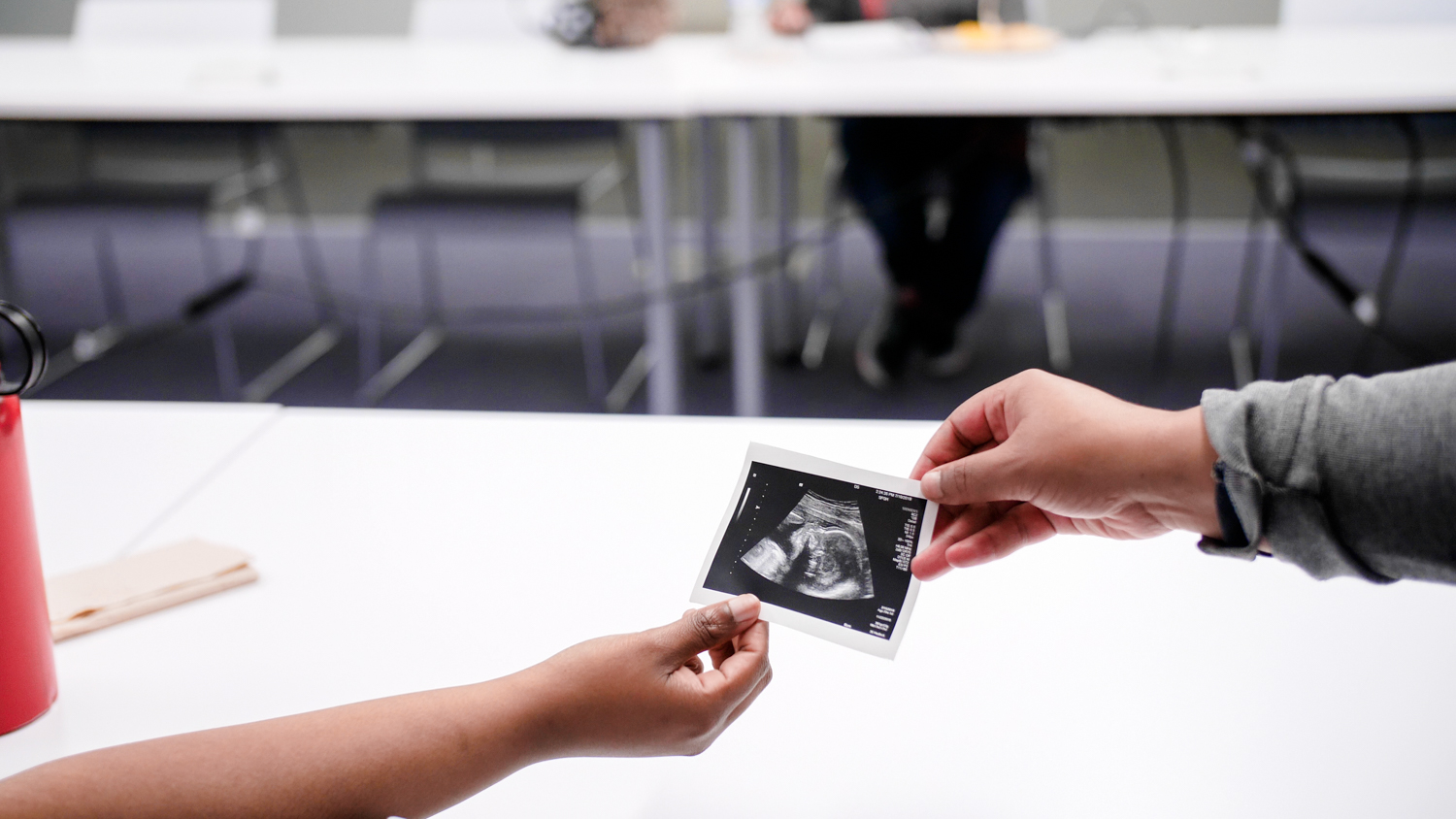
Research on Racism and Maternal Health Faces Funding Challenges
Crowdfund Effort Underway to Support Ongoing Project
A University of California, Davis research project that aims to improve maternal health for Black women, who face high rates of pregnancy-related complications, needs funding support to continue onto a vital next phase of the study.
Brittany Chambers Butcher, associate professor with the Department of Human Ecology, leads the CARE (Community Strategies to Advance Reproductive Justice and Equity) Lab, which studies how racism affects the health of Black women. Her team partners with community groups and healthcare providers in California to create practical solutions that could save lives.
“The data show that Black women are three-to-four times more likely to die during childbirth or from related complications,” Chambers Butcher said. “And the majority of these deaths and complications happen in the postpartum time period. That means women are going home, they’re calling, they’re saying things are wrong with them and no one is listening to them.”
Investing in care and research

Chambers Butcher and her research team created a comprehensive training curriculum that teaches health clinicians the history of racism and offers tools and strategies to deliver more equitable, dignified care. The program was developed in response to California’s Senate Bill 464, signed into law in 2019 and includes a requirement that providers complete evidence-based training on implicit bias and reproductive justice.
Many clinicians in the region have completed the training and Chambers Butcher said they’re reporting greater confidence in addressing racial bias and speaking up for patients. But she hopes to further examine whether patients of trained providers actually receive better care and have improved birth outcomes. That phase of the research requires funding she doesn’t have.
“At this moment, there is no funding to continue this work,” she said. “There is this law that's been in existence for a few years and providers are currently taking trainings that have not been tested for any proven outcomes, and so if we want to really close this equity gap, this research is really important and needed.”
The CARE Lab is getting support from its Crowdfund UC Davis effort with a goal of raising $5,000 to help continue this research.
“With the funds from the crowdfund, we'll be able to extract some medical record data from the sites that we've partnered with to really see, does this training impact how often someone came to their prenatal care appointment,” she explained. “Was this based on if their provider actually participated in our training, or not? Were they able to get screened for certain things such as hypertension and diabetes if indicators showed up in their charts?”
Healing the healers
From listening to stories of racism and trauma to analyzing data, Chambers Butcher said sometimes this work can take a toll on researchers, as well as providers and community partners, including doulas. That’s why she led the development of a healing toolkit designed to support those involved in this emotionally heavy work. It includes affirmations, meditation, music and movement exercises. The toolkit is found online and maintained by the Sexual Health and Reproductive Equity (SHARE) Program at the UC Berkeley School of Social Welfare.
“There are times where the work gets heavy, where it seems really hopeless,” she said. “I was able to pilot this toolkit with students here at UC Davis, as well as with some community partners. One student told me, ‘No one has ever given me this permission to actually take this time to take care of myself,’ and so we're really interested in trying to turn this into an app that we could pilot within healthcare settings.”
The toolkit is just one piece of a larger effort to better support both patients and healthcare providers. Closing maternal health equity gaps for Black women can strengthen care systems for everyone, and lasting improvements for them and their families require continued research, funding and attention.
“We can learn ways to measure it better, to inform policy and interventions, to dismantle racism and to operate within systems that impact Black women's health,” Chambers Butcher said.
Media Resources
- Brittany Chambers Butcher, UC Davis Department of Human Ecology, bdchambers@ucdavis.edu
- Tiffany Dobbyn, College of Agricultural and Environmental Sciences, tadobbyn@ucdavis.edu